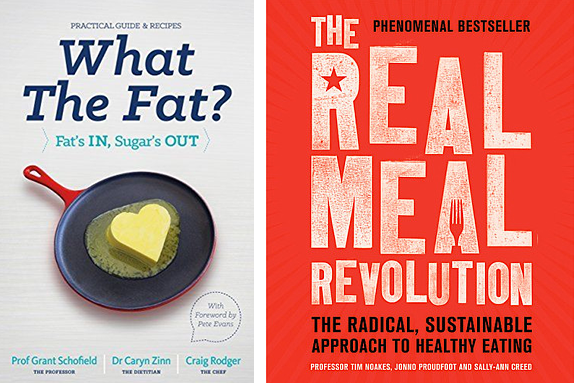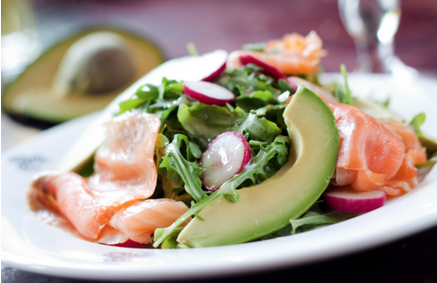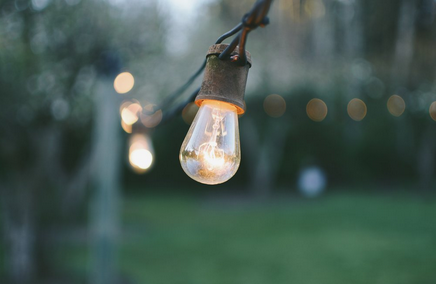Tips for living a Low Carb High (Healthy) Fat Lifestyle
- This is a healthy, whole food way of eating. Eat ‘one ingredient’ foods mostly. No processed food. No fake food.
- When you go high fat, you must go low carb.
- Ideally eat only three meals per day. (If needed, have just one snack).
- It is better to have a longer period between meals, than to snack frequently.
- Ideally have 12 hours between your last meal at night and breakfast the next day.
- If you aren’t hungry, don’t snack for the sake of it.
- The goal is low carb, moderate protein and higher than usual natural fat. Do not go high protein, keep protein moderate.
- Eat enough with your meals to feel satisfied, then don’t snack.
- It is not unusual to be constipated in the initial stages. Make sure you are drinking plenty of water, eat large servings of low carb veggies/salad at lunch and dinner and if you need to take something to help, try Good Health Mg-Lax from the chemist. It is an excellent product. Take 2 at night, it is completely natural.
- You may experience ‘low carb flu’ somewhere around day 4. It doesn’t happen to everyone, but some people feel very low, tired, maybe a bit nauseous and just out of sorts. Add ½ tsp pink mineral salt (Himalayan salt) to your water or food each day to help with this. In fact it is a good idea to add salt while living high fat, low carb. You can sprinkle salt on your avocado or meal as a way to increase your salt intake.
- Veggies to use are mainly above the ground veggies, i.e. go lightly on carrots and beetroot and exclude potatoes and kumara. No corn, broad beans, peas or edamame beans. Eat plenty of leafy greens.
- Feel free to eat fatty meat, the skin on chicken, pork crackling, also pork belly, lamb chops, etc. Natural fat is fine, avoid processed fats and trans fats.
- Use full fat dairy products, but in moderation.
- While it is fine to eat high, natural fat products, it is not a licence to overeat. Calories still count especially if you don’t have much fat to lose. Go with your appetite and eat enough at your meals to be able to not snack between meals.
- Fruit is naturally relatively high in carbs, stick to a small serving of berries.
- While wine is low in carbohydrates, it certainly isn’t calorie free. Avoid beer, cider and cocktails and drink wine and spirits very moderately.
- Remember that treats are treats and while there are plenty of recipes for low carb ‘balls’, cakes and desserts, these are not everyday items.
- Be aware that there will most likely be an initial big weight drop, then you might stay the same for a while; there may be a slight gain after a few weeks, and then a drop again. This is normal. You should feel ‘smaller’ though, no matter what the scales are showing. Don’t worry about scale weight, most people notice a change in size, more than the scales changing.
- Results will vary from person to person. Some people lose weight very quickly, for others it takes longer. Just hang in there and keep the carbs low and the fat up.
Possible reasons for slowing of fat loss:
- Not eating enough fat
- Eating too much protein
- Not drinking enough water
- Not enough exercise
- Lack of veggies
- Too much alcohol
- Eating too much fruit
- Eating too many calories, rather than listening to your body’s signals. If you aren’t hungry, don’t eat for the sake of it
Is living the low carb, high fat lifestyle for you?
- Find out how it can help and if it's right for you on my blog.
- Read about Ady's transformation here.
Websites for further reading:
Books to Read:
- What the Fat
- The Real Meal Revolution
Both of the above books have a good explanation re living the low carb, high fat lifestyle and have excellent recipes in them as well




